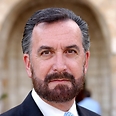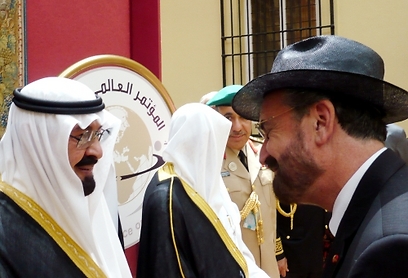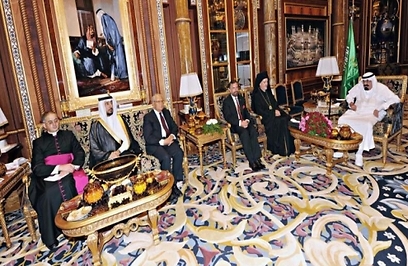
Named after Saudi King Abdullah, the center is a welcome boost for bridge-building between faiths in an era of financial austerity but has drawn criticism because Saudi Arabia enforces a strict Islam and bans non-Muslim religious practice.
Video courtesy of jn1.tv
The center was inaugurated in the presence of UN Secretary-General Ban Ki-moon and representatives of different countries – some hostile to Israel.
The surprise of the evening was unquestionably the appointment of Rabbi David Rosen from Israel as a member of the center's board of directors.
"The prime purpose is to empower the active work of those in the field, whether in the field of dialogue, of social activism or of conflict resolution," Rosen said.
"We want to empower you," he told an opening session where dialogue projects from Europe, the Middle East and Africa reported on how they worked to foster interfaith understanding.
Rosen, an Orthodox rabbi from Jerusalem, serves as the international director of interreligious affairs of the American Jewish Committee (AJC) and as an advisor on interreligious affairs to Israel's Chief Rabbinate.
His selection is surprising in light of the extreme sensitivity in appointing an Israeli personality to a Saudi-initiated and sponsored center.

Rabbi David Rosen meets Saudi King Abdullah
The appointment was part of a secret move devised over several years, which reached its peak about three weeks ago in a meeting between the Saudi king and the Israeli rabbi at Abdullah's summer residence in Casablanca, Morocco.
Rabbi Rosen told Ynet that "during the meeting, King Abdullah spoke warmly about the Torah and its purpose, alongside the Koran and New Testament." He added that the king saw part of the Torah's purpose as a possibility "to improve and promote the value of life among all humanity."

Saudi king with members of interfaith center's board
Following the appointment, Rabbi Rosen will be joining nine religious scholars serving at the King Abdullah bin Abdulaziz International Center for Interreligious and Intercultural Dialogue (KAICIID) in Vienna, including representatives from Lebanon, Saudi Arabia and Iran, alongside Christian clerics and a Buddhist leader. The nine were present at the meeting between Rabbi Rosen and the king.
"My colleagues on the board of directors asked me to address the king," says Rabbi Rosen. "I thanked him for his courage to include an Israeli rabbi on the board, and expressed my hope that the initiative would lead to changes in the freedom of religion and rights in Saudi Arabia – as well as a blessing and benefit for us living in the Holy Land."















